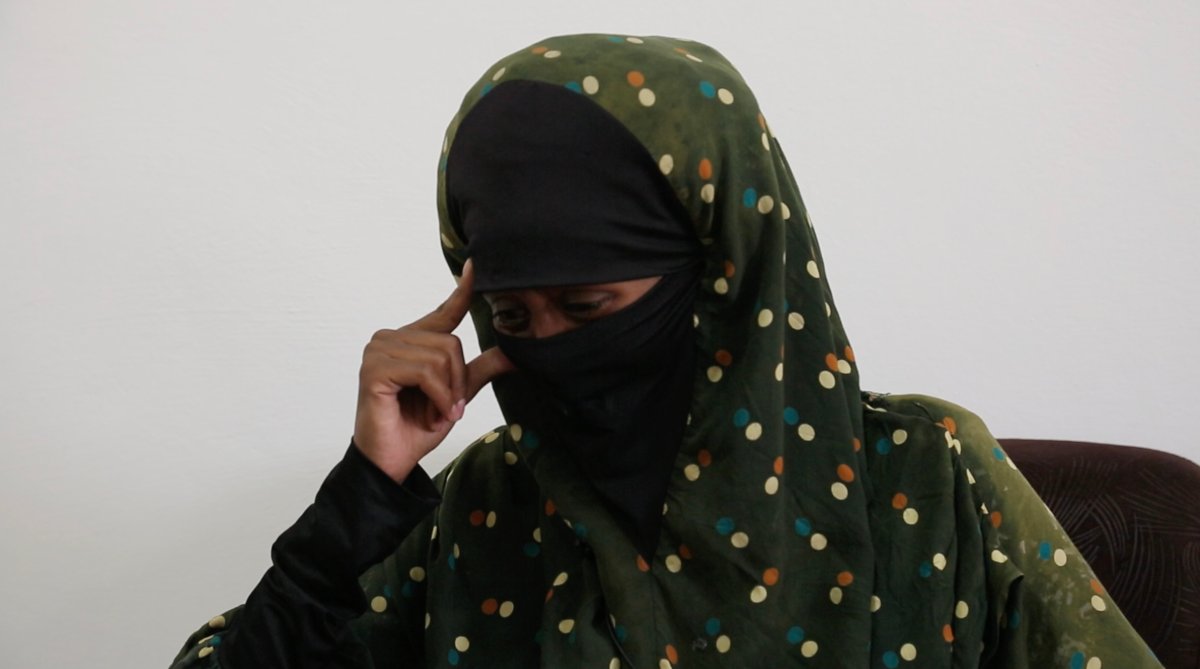Canada’s intelligence service warned Thursday about the “security implications” posed by captured ISIS members the government is bringing home from detention camps in Syria.

In its annual report, the Canadian Security Intelligence Service said extremists returning from abroad might not immediately conduct attacks but “in time” may fundraise and recruit.
“They have been exposed to radical influences, violence, repression and many have received weapons and explosives training,” CSIS wrote in its report to Parliament.
The words of caution about “Canadian Extremist Travellers,” or CETs, come as Global Affairs Canada is repatriating Canadians caught in Syria during the fight against ISIS
On April 6, the foreign affairs department brought four Canadian women out of camps for ISIS detainees in Syria and flew them to Montreal, where three were arrested.
Days later, the women were released on bail while the RCMP attempts to impose peace bonds on them to restrict their movements. The fourth woman was not arrested.
“Around the world, like-minded countries are taking steps to repatriate their respective citizens from northeastern Syria,” Global Affairs Canada and Public Safety Canada said in a statement at the time.
Two more women, both from Edmonton, are also being repatriated to Canada from the ISIS camps. Four men with Canadian citizenship may also be coming back.
“Almost a decade after their initial mobilization, DAESH-affiliated Canadian Extremist Travellers are returning to Canada from camps in Syria and Iraq,” CSIS wrote, using the government’s term for ISIS.
“Although CET returnees may not immediately or directly engage in extremist violence, they still pose a national security risk,” the annual report said.
“In time, CETs may engage in extremist activities such as fundraising, maintenance of domestic and international networks, radicalization and/or recruitment.”

Dozens of Canadian extremists travelled to Syria and Iraq to join ISIS, notorious for its genocide of Yazidis, terrorist attacks and videotaped beheadings.
While most are likely dead, a handful were captured by U.S.-backed Kurdish fighters during collapse of ISIS and held at makeshift prisons and camps in northeast Syria.
The Canadian government initially declined to help them but officials changed course after their families launched a legal challenge in the Federal Court.
In January, Global Affairs Canada agreed to bring the women and their children home. The court ordered Ottawa to also repatriate the men but the government has appealed.
The court has not yet released its ruling.
It is illegal to leave Canada to participate in terrorism, but the RCMP has struggled to bring criminal charges against returning ISIS members, citing the challenge of collecting evidence.
So far, seven women have come back from the camps, along with a dozen children. Only one, from Montreal, has been charged. The RCMP has applied for peace bonds for five others.
Two women were supposed to return with the others in April but could not be located and were left behind. Their lawyer said Wednesday that Ottawa was taking steps to bring them home.

Lawrence Greenspon said Global Affairs Canada (GAC) had confirmed it had spoken to the Autonomous Administration of North and East Syria (AANES) about the women and their three kids.
“GAC has confirmed that they have been in contact with AANES and obtained assurances that Kurdish authorities will facilitate the repatriation of these five Canadians as it did for the other 14 Canadians a few weeks ago,” he said.
“Although no time frame has been specified, it gives the families hope for the return of their loved ones.”
The CSIS report said religiously-motivated extremist groups like ISIS and Al Qaeda remained a threat.
“Their ideologies can be fluid and the threat increasingly originates from youth, primarily online. There is a propensity to mobilize to violence quickly, using low-tech means to take action against soft targets.”
Last month, an alleged ISIS supporter slashed a man’s neck on a bus in Surrey, B.C. He has been charged with terrorism. Quebec RCMP arrested an 18-year-old in March for alleged links to ISIS.
Despite being “under pressure on multiple fronts,” ISIS still aspires to “re-establish a Caliphate by continuing to conduct insurgent attacks” and has expanded its reach, particularly into Sub-Saharan Africa.
- Posters promoting ‘Steal From Loblaws Day’ are circulating. How did we get here?
- Canadian food banks are on the brink: ‘This is not a sustainable situation’
- Video shows Ontario police sharing Trudeau’s location with protester, investigation launched
- Solar eclipse eye damage: More than 160 cases reported in Ontario, Quebec





Comments